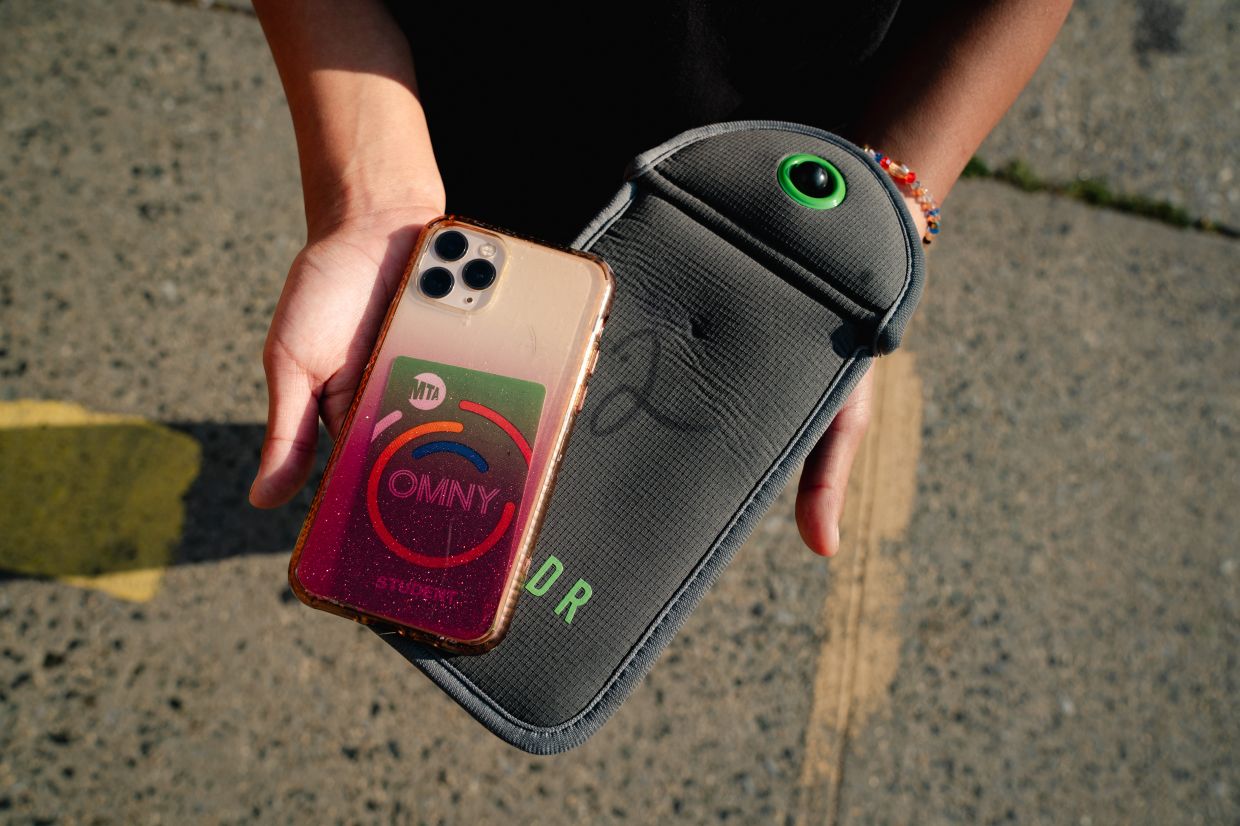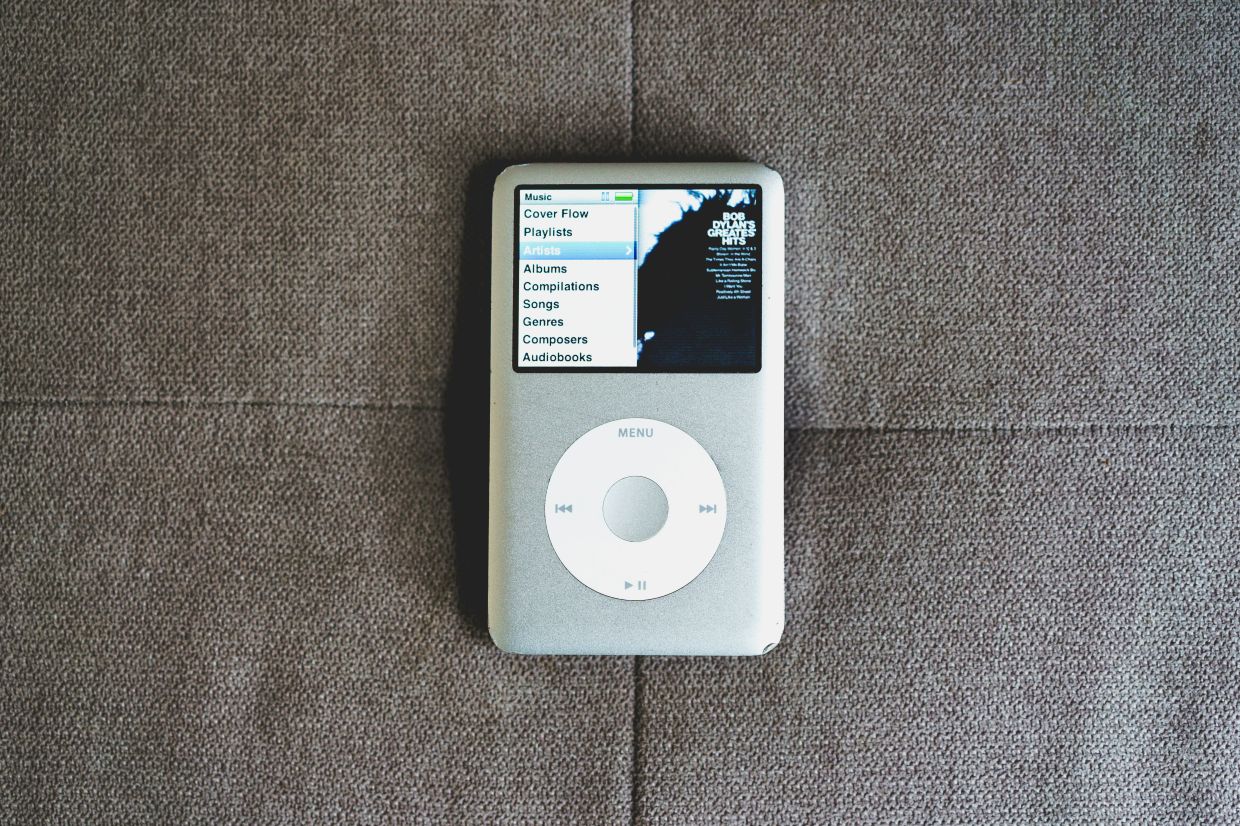
When Sebastien Wall found out that cellphones were about to be banned from his New Hampshire high school, he began making preparations.
Sebastien, 17, said he thought the policy was a good idea to keep students focused during class. But what about his lunchtime soundtrack? So, over the summer, he bought a used fifth-generation iPod for US$80 (RM336) and loaded it with songs by Pink Floyd and Rage Against the Machine.
Upon returning to school last week, he realised he was not the only teenager to greet the new phone ban with technology that is – by Gen Z’s standards, at least – Paleolithic.
“I’ve seen people walking around with CD players, and someone also has a Walkman,” Sebastien said. But an old device is now more than a nostalgia trip, he said. “It’s our last resort.”
Young people’s appreciation for flip phones, digital cameras and other gadgets of the recent past is well documented, but it seems to have taken on new urgency in response to a wave of smartphone restrictions in schools that has reached more than a dozen states.
Last week, New York City became the largest school district in the country to introduce a bell-to-bell ban on phones and other Internet-enabled devices. In response to new policies, enterprising students have shown up with MP3 players obtained online or from family members.
A Sony Discman and an iPod Shuffle were among the unexpected arrivals during the first week of school in Festus, Missouri, said Josh Bauman, the school district’s technology director.
“This one kid was so proud that he found his mom’s iPod Nano, and she had Adele,” Bauman said. By the end of the first week of classes, the principal of Festus High School had sent an email asking students to leave their MP3 players at home.
On social media, young people are positioning MP3 players as an all-purpose workaround for the phone bans, but whether such devices are actually permitted varies from district to district. Sebastien’s school in New Hampshire bans only devices that can connect to the Internet. His iPod can’t, so his homeroom teacher gave him the go-ahead to use it during downtime.
In Bauman’s district in Missouri, however, iPods have technically been off-limits since 2008. “The stance that the district is taking is more or less ‘Is it a distraction?’” Bauman said, adding that administrators were consulting with students about how and when they use MP3 players.
All of this has been amusing for people who can recall when Gen Z’s new favourite audio players were themselves the height of classroom contraband.
Mike Givens, 51, remembers listening to his Walkman on the bus but being instructed to leave it in his locker during school hours. He now belongs to a Reddit forum for iPod enthusiasts that has been flooded with students scrambling to prepare for phone bans.
He believes that young people were behind a surge this summer in his business selling refurbished iPods on eBay: He sold 68 devices in one week at the end of July, he said, compared with 22 during the same time period last year.
The teenagers bringing iPods to school say music helps them focus while studying and decompress during breaks.
Elijah Bayron, 16, a junior in Ithaca, New York, bought an inexpensive MP3 player this summer so he could keep listening to film scores during study hall. “I looked forward to it a little bit so that I could use the more old-school method,” he said.
His mother, Kalynn Bayron, groaned. “Hearing him say ‘old school’ makes me want to crumble into a pile of dust,” she said.
They agreed that the ban had been going relatively smoothly in Elijah’s district so far, although Bayron, 41, said she initially worried about contacting her son in an emergency. So far, Elijah has noticed that classmates seem to be socialising more.
Adaly Nolasco, 17, a senior in Houston, has found her mother’s hand-me-down MP3 player a far less distracting music source than the smartphone she used last year. Loading songs onto the device was “really confusing”, she said, but she figured it out with the help of a YouTube video.
“It’s definitely a good loophole,” she said. “Hopefully they don’t ban this, too.”
At least a few students have bypassed devices of the early 2000s entirely. Cooper Carey, 16, was trying to figure out a way to listen to pump-up music before crew practice when he came across a box of his father’s cassette tapes in the basement.
In August, just before the phone ban took effect in his New Hampshire school, he ordered a cassette player on Amazon that he is using to work through his father’s Metallica collection (he is choosing to ignore the Milli Vanilli).
His father, Dave Carey, 54, has gotten a kick out of introducing his son to the technology of his youth. He even showed Cooper how to use a pencil to fix a broken cassette.
“He goes, ‘This is a lot harder than it has to be’,” Carey said. “I go, ‘This is how it was.’” – ©2025 The New York Times Company
This article originally appeared in The New York Times.






